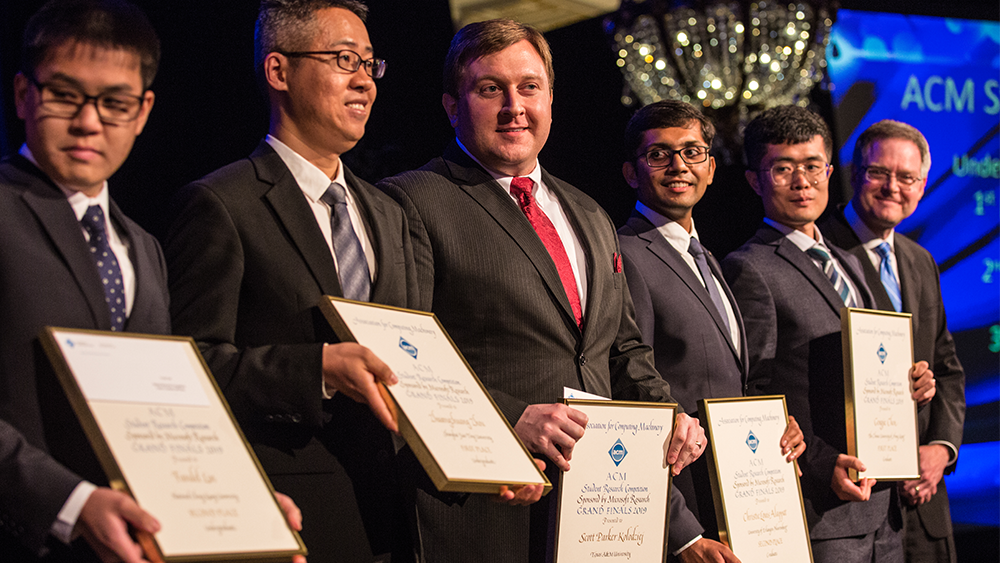
The Association for Computing Machinery (ACM) recently awarded Scott Kolodziej third place in the Grand Finals of the Student Research Competition for his work on code documentation.
Earlier this spring, Kolodziej participated in the initial round of the competition at the ACM Special Interest Group on Computer Science Education Technical Symposium and won first place in the graduate category before competing against first place winners from other ACM conferences for the grand prize. As a third-place winner, Kolodziej was invited to attend the ACM awards banquet held in San Francisco in June where he had the chance to meet and network with prominent computing researchers and practitioners.
As a graduate student in the Department of Computer Science and Engineering at Texas A&M University, Kolodziej’s research began when he sought to answer a seemingly basic question: What is the best way to document computer code?
Kolodziej led a team of undergraduates in designing a study in which student participants would read various code samples and then answer questions to measure their comprehension. Kolodziej’s research team found that both good naming and good comments are crucial to clear and understandable code documentation, but that good naming is the more important factor. While opinions vary on what constitutes good code documentation, Kolodziej and his team took the first steps toward gathering hard, objective data about what makes quality software.
The project was part of the Aggie Research Leadership Program, which connects aspiring undergraduate students interested in research with graduate students seeking mentorship opportunities and research assistance. The program helped form Kolodziej’s team of undergraduate students — Spencer Anderson, Yara Mohammed, Polina Golikova, Sahil Patel, Sagar Patel, Akash Rao and Srinivas Raghav Tankasala — from the departments of computer science and engineering and industrial and systems engineering. The research opportunity proved to be a valuable and rewarding learning experience for all involved, and Kolodziej became a certified Aggie Research Leader for completing the program.
“Given that I ran this study on an almost nonexistent budget with virtually no supervision, it was quite powerful to see the research become recognized the way it has,” Kolodziej said. “My team of undergraduates were fantastic. The whole experience helped me see that I have a career in research and the skills necessary to lead a research team to success.”